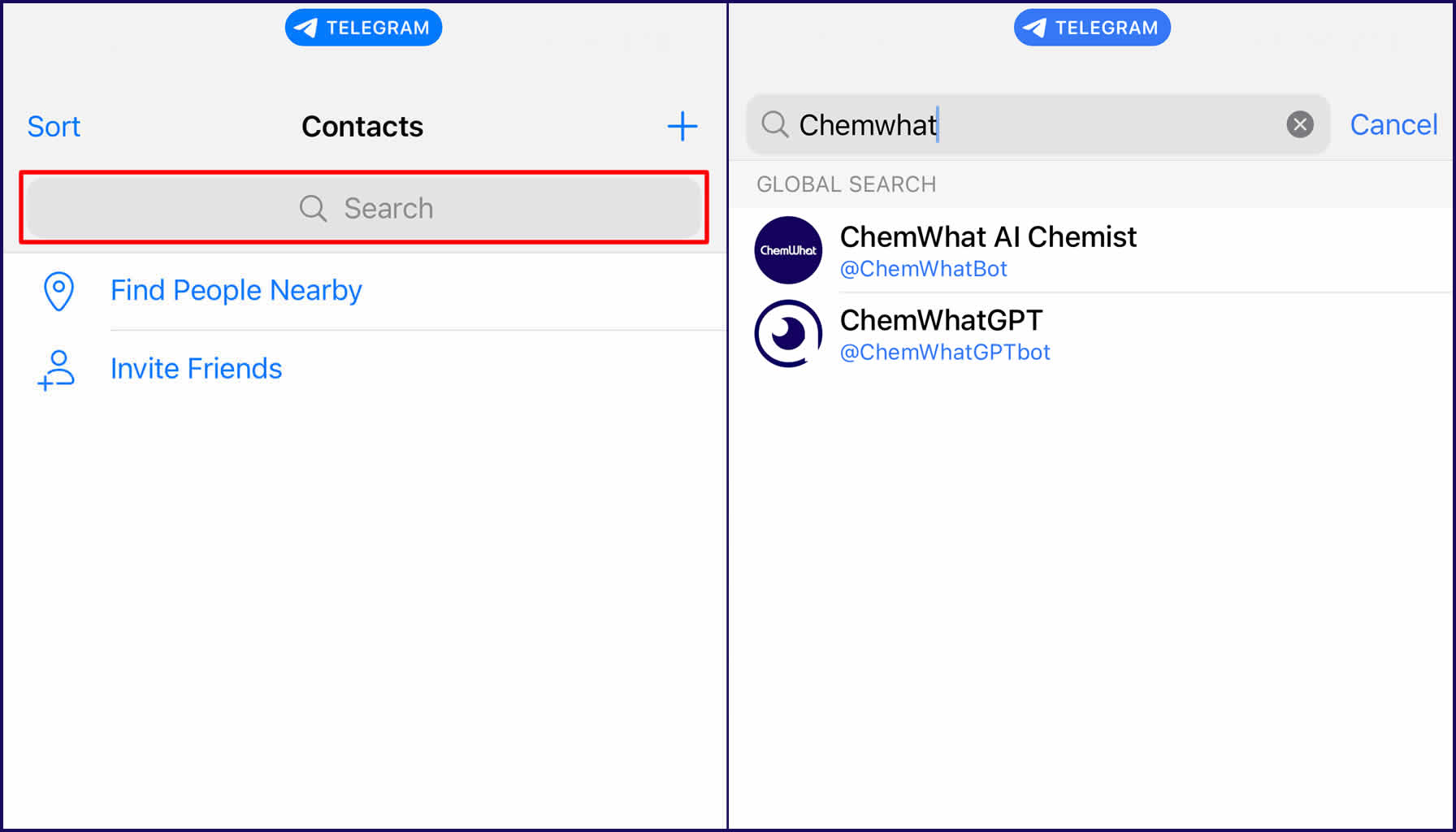
Challenges in Accessing Chemical and Biological Information for Academic and Research Institutions
In the rapidly evolving fields of chemistry and biology, access to accurate, comprehensive, and tailored Information is crucial for the success of research endeavors. Universities and research institutions often rely on sophisticated databases, search tools or some websites to gather the necessary data. Despite the advancements in information technology and the pursuit of precision, completeness, efficiency, researchers still face several significant challenges when searching for chemical and biological information.
- Information Overload : One of the primary challenges is information overload. Traditional chemical or biological information databases, like PubChem and ChemSpider, face this issue acutely. The volume of scientific literature is growing exponentially, with thousands of papers published daily across various journals and platforms. This massive influx of data can be overwhelming for researchers trying to stay current with the latest developments. Furthermore, these databases often lack customized and targeted information, making it difficult to refine searches effectively. The sources of information are sometimes not extensive enough, and the formatting can be overly complex and cumbersome, adding to the difficulty of quickly finding relevant studies and data.

- Access to Proprietary Databases : Many high-quality chemical and biological databases, such as SciFinder, Reaxys, and Cambridge Structural Database (CSD), require expensive subscriptions. Universities and research institutions, particularly those with limited funding, may struggle to afford access to these essential resources. This financial barrier can hinder researchers’ ability to obtain crucial information, limiting their research potential and competitiveness. Even for institutions that can afford the subscription fees, other challenges persist. Mobile access to these databases is often not convenient, limiting researchers’ ability to retrieve information on the go. This can be particularly problematic in dynamic research environments where quick and flexible access to data is crucial. Additionally, the usage frequency of these databases can be low, as researchers might only need specific information occasionally. Consequently, the cost-to-benefit ratio can be unfavorable, with institutions paying significant amounts for resources that are not used frequently enough to justify the expense. This underutilization further strains limited research budgets and can impede the overall efficiency of research operations.
- Data Quality and Reliability : Ensuring the quality and reliability of data remains a significant concern. In an attempt to balance the challenges of information overload and the inconvenience of accessing specialized databases, many students and researchers turn to B2B websites or reagent supplier websites for information. However, these sources present their own set of problems. The information available on these platforms often contains excessive market-oriented content, making it difficult to find the precise data needed. Additionally, the information provided is frequently incomplete and may lack the depth required for rigorous scientific research. Moreover, the reliability of data from these sources can be questionable, leading to potential errors, inconsistencies, and biases. These issues not only hinder scientific progress but also necessitate the establishment of robust methods for verifying data accuracy, which can be resource-intensive.
- Additional Challenges : Apart from the previously mentioned issues, researchers face the additional challenges of fragmented information sources and language barriers. Chemical and biological information is often scattered across multiple databases, journals, and repositories. This fragmentation makes it difficult for researchers to conduct comprehensive searches, as they must navigate various platforms to gather all relevant information. Integrating data from these disparate sources requires additional effort and expertise, further complicating the research process. Compounding this issue is the language barrier. Scientific research is conducted and published worldwide in multiple languages. This linguistic diversity can impede researchers’ ability to access and understand valuable studies published in foreign languages. Although translation tools are available, they may not always accurately convey complex scientific concepts, leading to potential misunderstandings and misinterpretations. This language divide exacerbates the problem of information fragmentation, making it even more challenging for researchers to compile a cohesive and comprehensive set of data from international sources. These combined challenges of fragmented information sources and language barriers significantly hinder researchers’ efficiency and effectiveness, requiring them to invest more time and resources to obtain and accurately interpret the necessary information.

ChemWhat AI Chemist : Transforming the Field with Precision, Completeness, Efficiency
ChemWhat AI Chemist is revolutionizing the search for chemical and biological information by embodying the principles of precision, completeness, and efficiency. By leveraging advanced artificial intelligence and ChemWhat high-quality database, ChemWhat AI Chemist provides researchers with highly accurate and relevant data tailored to their specific needs. This precision ensures that researchers can trust the information they retrieve, minimizing errors and enhancing the reliability of their work. More importantly, the applications provided by the ChemWhat AI chemist are currently completely free of charge.
The platform’s comprehensive approach integrates data from a wide array of sources, including scientific journals, ChemWhat databases, and paid repositories. This completeness allows researchers to conduct thorough searches without the need to navigate multiple platforms, saving valuable time and effort. ChemWhat AI Chemist’s extensive data coverage ensures that researchers have access to the most relevant and up-to-date information, facilitating more informed decision-making and innovative discoveries.
Efficiency is at the core of ChemWhat AI Chemist’s design. The platform streamlines the information retrieval process, utilizing sophisticated search algorithms and intuitive interfaces to provide quick and easy access to crucial data. This efficiency not only accelerates the research process but also enhances productivity, allowing researchers to focus more on analysis and experimentation rather than data collection.
Through its commitment to precision, completeness, and efficiency, ChemWhat AI Chemist is transforming the landscape of chemical and biological information retrieval, empowering researchers to achieve greater accuracy and innovation in their work.

Efficient Use of ChemWhat AI Chemist
If you need to use it temporarily, simply visit the ChemWhat website at www.chemwhat.com and click on the AI Chemist icon at the bottom right corner to start intelligent interaction. But to maximize the benefits of ChemWhat AI Chemist, there are two highly efficient ways to access its powerful features :
Adding ChemWhat as a Mobile App or Desktop Shortcut
To provide a more integrated experience, ChemWhat AI Chemist is available as a mobile app or desktop shortcut through your web browser. This approach offers significant advantages, especially for those who want the convenience of a mobile app without the drawbacks of traditional app development.
- Easy Installation : Installing ChemWhat AI Chemist as a mobile app or desktop shortcut is straightforward and quick. Just visit the ChemWhat official website using your browser. Look for the “Share” button (an upward arrow in Safari) or the “Menu” button (three dots in Chrome). Other browsers will have similar options. Select “Add to Home Screen” or “Install app” from the menu. This allows you to access ChemWhat conveniently, providing an app-like experience on any device.

- No Updates Needed : PWAs are always up-to-date, ensuring you have the latest features and data without needing to download updates.
- Cross-Platform Compatibility : The PWA works seamlessly across different operating systems and devices, ensuring a consistent user experience.

By using ChemWhat as a PWA, you avoid the hassle of downloading and maintaining a traditional mobile app. This not only saves time but also ensures that you have quick and efficient access to ChemWhat AI Chemist from any device, whether you’re in the lab, on the go, or at your desk.
Connect with ChemWhat AI Chemist on Telegram
The other easy way to leverage ChemWhat AI Chemist is by adding the ChemWhatBot on Telegram. Telegram is a versatile messaging app known for its speed, security, and cross-platform availability. It offers several advantages for researchers :

- Instant Access : Telegram provides immediate access to ChemWhat AI Chemist’s capabilities directly within the chat interface.
- Ease of Use : The bot can be used without any additional software installation, making it convenient for quick searches and data retrieval.
- Multi-Device Sync : Telegram seamlessly syncs across devices, allowing you to access ChemWhatBot from your phone, tablet, or desktop.
- Secure Communication : Telegram’s encryption ensures that your research queries and data remain private and secure.
To get started, simply search for “ChemWhatBot” on Telegram, add the bot to your contacts, and start querying chemical and biological information instantly.
In summary, both the Telegram bot and the Progressive Web App options provide flexible, efficient, and secure ways to access ChemWhat AI Chemist, enhancing your research productivity and ensuring you have the information you need at your fingertips.
Conclusion
The landscape of chemical and biological research is fraught with challenges, from navigating the vast seas of information overload to the prohibitive costs of accessing high-quality databases. However, ChemWhat AI Chemist is poised to transform this field with its commitment to precision, completeness, and efficiency. By leveraging advanced AI technology, ChemWhat offers researchers a powerful tool to streamline their search processes and elevate the quality of their work. As we look to the future of research, tools like ChemWhat AI Chemist will be instrumental in overcoming the complex information barriers that currently impede scientific progress. By integrating these innovative solutions, researchers can focus on deeper analysis and groundbreaking discoveries, ultimately advancing our understanding of chemistry and biology.









